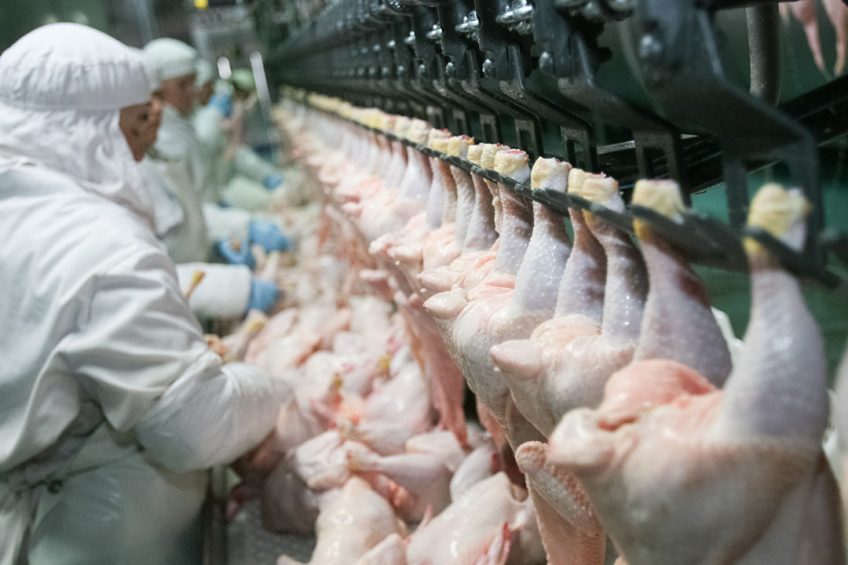Cognitive robots make a difference in poultry sector

Scientists have clinched funding from a €3 million pot to develop cognitive robots for flexible agro-food technology, which could make a real difference in the poultry meat sector.
The project – one of six to share the joint Dutch industry/government funding – is designed to resolve the issue of large variations in shape, size and softness of agro-food products and different environmental conditions.
The challenge of the FlexCraft project is to equip robot technology with active perception, planning, control, gripping and manipulation; capabilities needed to deal with the conditions in a robust way.
Eldert van Henten, head of the programme at Wageningen University and Research, said: “Food production has to be as hygienic, efficient and sustainable as possible. Moreover, fewer people are willing to do boring and heavy work in warm, humid greenhouses or cooled processing facilities in which products such as chicken are processed.
“Robots can provide a solution, as they never tire and function well at low temperatures.
“We develop generic skills for robots to handle agro-food products with diverging shape, size and firmness. Such actions may be simple for a human being, but are tough challenges for a robot. The robot needs to understand what kind of food products it perceives, what conditions they are in and how to approach and treat them.
“The sensors collect information and add that to their domain knowledge to create a so-called world model comparable to the knowledge and experience that people build.”
The FlexCraft programme is developing new robotics for the automated harvesting of tomatoes, the processing and packaging of chicken products and the packaging of bags of crisps and boxes of biscuits into boxes of different sizes.
One investor in the programme is Marel Poultry, which believes the FlexCraft project is exactly the kind of research needed.
Marel already has its RoboBatcher which, it says, marks a milestone in the automation of food processing. Robobatcher hatches up to 300 fillets a minute and is suitable for a vast range of plastic and polystyrene trays.
Other processes in the poultry value chain, however, demand similar robot technology, with even more advanced generic capabilities in active perception, planning, control, gripping and manipulation.
Marel believes FlexCraft can support this, particularly as one of the cognitive robot projects will focus on poultry processing. Marel says it will be the leading industrial partner in the creation and utilisation of a new generation integrated robotics system solutions.













